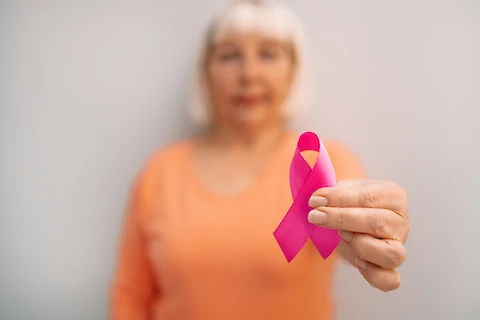
How Often Should You Get Breast Exams as You Age?
Whether it's hiking a mountain for a view of Waikiki or enjoying a trip to Diamond Head, Hawaiians appreciate the natural beauty of Oahu. No one would blame visitors or residents around Honolulu for capturing every moment of sunshine and sea breezes. That's one reason why October is designated as Breast Cancer Awareness Month. It's not that people forget about breast cancer and taking breast cancer screenings. It's just that life gets in the way.
The medical landscape has changed significantly over the years. Raising awareness keeps people up to date on changes in treatment and new research results. A recent study found that American women have a 12.9% chance of developing breast cancer during their lives. Although women have a higher incidence rate, non-female Americans are still at risk. They have less than a 1% lifetime risk of developing breast cancer. However, the risk varies based on age.
Current estimates show the risk of being diagnosed with breast cancer during a ten-year period as follows:
- Less than 1% at age 30
- 1.55% at age 40
- 2.40% at age 50
- 3.54% at age 60
- 4.09% at age 70
These are population averages, and individual risks can depend on personal health factors and medical history.
What Exams Are Recommended?
Early detection is the best way to prevent breast cancer. If pre-cancerous cells are detected in their breast cancer screenings, they can be treated or removed before they become cancerous. However, breast cancer screenings recommendations do vary. The Centers for Disease Control (CDC) recommends:
- Start annual mammograms between ages 40 and 44.
- Have annual mammograms from age 45 to 54.
- Begin mammograms every two years at age 55.
Other organizations recommend clinical exams (by a physician) beginning at age 20 and continuing through age 75. They also recommended continuing mammograms every two years through age 75. Mammograms are not recommended for anyone over the age of 85. In all cases, individuals should discuss breast cancer screenings with their physicians. The CDC provides a chart comparing the recommendations from different organizations.
What Are the Primary Risk Factors?
Most people are familiar with the primary risk factors for breast cancer:
- Gender. Females have a greater incidence of breast cancer.
- Age. The likelihood of being diagnosed with breast cancer increases with age.
- Breast History. Breast biopsies or atypical results increase the risk of breast cancer.
- Breast Cancer. Having breast cancer once increases the odds of a subsequent diagnosis.
- Family History. If a mother, sister, or daughter has, or had, breast cancer, the cancer risk increases.
- Genetic Mutations. BRCA1 and BRCA2 are gene mutations that can be passed from parent to child and greatly increase cancer risks.
However, breast cancer often occurs in individuals with no family history of breast cancer, which is why early detection through breast cancer screenings is so important.
Secondary Risk Factors
People may be less familiar with some lifestyle and personal history factors that can increase the risk of breast cancer. These include:
- Radiation exposure. Childhood X-rays of the chest may increase breast cancer risk.
- Obesity. Being obese increases the risk of breast cancer.
- The onset of menstruation. Individuals with a first period before the age of 12 are at an increased risk.
- The onset of menopause. Late onset of menopause increases the risk of breast cancer.
- Late Pregnancy. Those having their first child after the age of 30 may have an increased risk.
- No Pregnancy. Those who were never pregnant have a greater risk than those who had at least one.
- Hormone Therapy. Breast cancer risk increases while on hormone therapy using estrogen and progesterone during menopause. The risk declines when the therapy stops.
- Alcohol Consumption. Drinking alcohol increases the risk of breast cancer.
Risk factors, while a strong indicator of a propensity toward breast cancer, are only indicators. Individuals diagnosed with breast cancer have none of these risk factors.
Senior Helpers of Moanalua-Honolulu
Those living on Hawaiian islands like in Moana-Honolulu are in the perfect place to minimize their breast cancer risk. Beyond the breast cancer screening recommendations, doctors suggest patients exercise regularly and eat a healthy diet that includes fresh fruit and vegetables.
Aging can sometimes make it difficult for those over 65 to exercise or prepare meals. Senior Helpers of Moanalua-Honolulu can help with a senior loved one's in-home care. They can help individuals in the Honolulu area enjoy the island's outdoors and its varied cuisine. Contact us today.